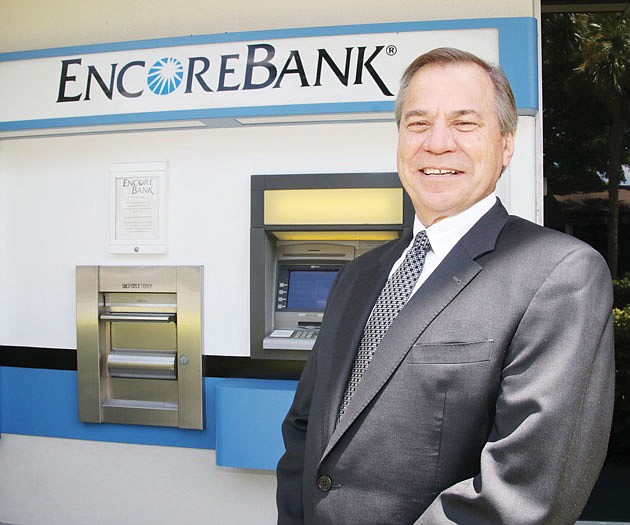Many bankers, feeling put upon by what they say is a tax-free ride the federal government gives credit unions, aren't likely to join a unity parade with their financial services brethren anytime soon.
But when credit union executives show up with acquisition offers and lots of cash, community bank officials are listening.
That's where Encore Bank CEO Tom Ray found himself earlier this year, after Lake Michigan Credit Union reached out to acquire the profitable Naples-based community bank, with $396.7 million in assets. Not long after Grand Rapids-based Lake Michigan's unsolicited all-cash offer, “we found we had common cultures,” Ray says, adding the offer was “a good value to my investors.”
The institutions ultimately agreed on a purchase, and the deal was announced Aug. 7. Financial terms weren't disclosed.
Pending regulatory approvals, the purchase could close in the first quarter of 2018. It would mark the third credit union acquisition of a Florida bank in slightly more than two years. Dunedin-based Achieva Credit Union, with $1 billion in assets, led things off in 2015 with the purchase of Charlotte County-based Calusa Bank. Then last year Delray Beach's $980 million IBM Southeast Credit Union acquired Mackinac Savings Bank in Boynton Beach.
In both deals, the cash-laden credit unions were the hunters and the community bank and savings bank the hunted. That makes sense, considering freedom from income taxes and dividend payments to shareholders gives credit unions access to cash for the transactions. The state-chartered Calusa Bank had $165 million in assets and locations in Sarasota and Charlotte counties. The $109 million Mackinac Savings Bank had offices in Palm Beach County and lending offices in Florida, Massachusetts and Michigan.
Ray, who will stay on as regional president of Lake Michigan Credit Union of Florida after the acquisition, says the takeover gives Encore an easier path to growth and expanded services for customers. Encore's six locations will join Lake Michigan's four other Southwest Florida locations.
“This gives us a much stronger capital position to grow fairly significantly over the next three years,” says Ray, whose bank posted a 2016 profit of about $1.2 million.
Lake Michigan Credit Union, with more than 360,000 members, finished $38 million in the black last year. “We like Lake Michigan because of their consumer strength,” Ray says. “They like us for our commercial strength.”
Ray says he expects life under the Lake Michigan banner will boost residential real estate lending, which last year reached $279 million for Encore. And in addition to a transition to a tax-exempt status, Encore doing business as Lake Michigan Credit Union lightens the burdens of meeting federal Community Reinvestment Act rules, adds Ray. “That is probably the biggest regulatory difference,” he says. “I am still a banker and will be learning more about that.”
Beyond the Lake Michigan-Encore deal, credit union-bank acquisitions have a strong future, says Achieva CFO Dennis Holthaus, who also leads Achieva Merger Services. Achieva launched that unit earlier this year to help credit unions and banks identify suitable partners, guide the organizations through the transaction and help merge operations. “We think we're just starting to scratch the surface of our industry acquisitions,” says Holthaus, whose background includes stints in banking.
Holthaus thinks Lake Michigan's deal for Encore is at least partly aimed at serving the thousands of Michigan members who winter in Southwest Florida. “This should make their operations more efficient ... and much more profitable,” he says.
On an industrywide level, Holthaus says a state statute allowing a bank acquisition through a cash purchase of its stock will help propel more credit union-bank acquisitions. “I think there is an asset size in a community bank that is in a $300 million to $400 million range,” he says. “It is really the small community bank that wants to merge. They really don't have many alternatives other than a credit union.”
What about those bad feelings between banks and credit unions?
They seem to dissipate once credit unions put cash on the table. Says Holthaus: “That overcomes a lot of the brain washing that has taken place over time.”






